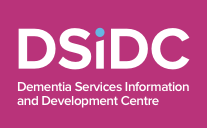Younger onset dementia or early onset dementia is a term used to describe any form of dementia diagnosed in people under the age of 65. Compared with late onset, younger onset dementia poses different challenges. These include employment issues, sometimes leading to financial matters and family life where there are young dependent children involved. It may be difficult to diagnose at an early stage, possibly due to a lack of awareness that dementia can affect younger people and possibly because it does not fall within the remit of any one specialist medical consultant. It can be misdiagnosed as depression, stress or, in women, the menopause.
There are more than 5,000 younger people with dementia in Ireland; however, this figure is likely to be underestimated.
Symptoms of Younger Onset Dementia
Alzheimer’s Disease is the most common type of dementia in younger people (accounting for approximately a third of all cases). About half of all people with early onset dementia have a family history. The symptoms of early onset dementia are often similar to those of late onset and include:
- Memory problems, especially short term memory loss
- Experiencing difficulties with daily tasks
- Speech and language problems
- Inability to concentrate
- Disorientation in time, place and person
- Difficulties in recognition, understanding and comprehension
Risk factors for Younger Onset Dementia
Alzheimer’s disease, vascular disease, FTD, and Dementia with Lewy bodies are the most common causes of dementia in younger people. However, the younger a person is at the time of onset, the greater the likelihood that the disease has a genetic (i.e. familial) component.
Diagnosis and Beyond for Younger Onset Dementia
Due to a general lack of awareness it can be difficult and time consuming for younger person to get an accurate diagnosis. There are few specialist diagnostic services for younger people. Diagnosis will usually be made by a neurologist with an interest in the area or by a specialist Memory Clinic service.
When a person is diagnosed with younger onset dementia she/he may still able to manage activities of daily living. The person may still be in full time employment, have young children, and they may feel overwhelmed and frightened about what the future holds. An early and accurate diagnosis is important so that the person and the family can discuss financial, legal, care and employment matters for example.
- Talk to your family about how you would like your legal, financial and care matters
- Appoint someone who will take care of your financial and legal matters.
- There may come a time when you might need someone else to make decisions on your behalf such as where you would like to live, at home or elsewhere.
- Talk to your employer about ways that the working environment can be adapted to your new diagnosis
- Reduced working hours/responsibility
- How to stay physically fit and active if you wish
- Communicate with your family about what changes you are experiencing; this will help them understand how to meet your needs. Children and young adults especially will need help in understanding what is happening to their parent or relative.
